 |
 |
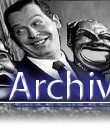 |
 |
 |
 |
 |
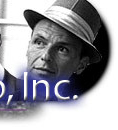 |
Click on the picture of your favorite celebrity to view more information. | |
 |
|||||||||
|
A MATCHLESS LIBRARY TELEVISION ARCHIVE |
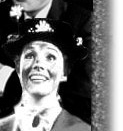 |
|
 |
|
 |
|
 |
|
 |
|
 |
|
 |
|
 |
|
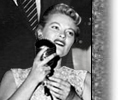 |
|
 |
|
 |
|
 |
|
 |
|
 |
|
 |
|
 |
|
 |
|
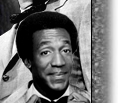 |
|
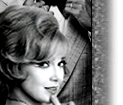 |
|
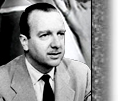 |
|
 |
|
 |
|
 |
|
 |
|
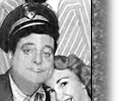 |
|
 |
|
 |
|
 |
|
 |
|
 |
|
 |
|
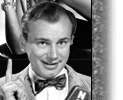 |
|
 |
|
 |
|
 |
|
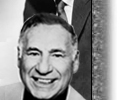 |
|
 |
|
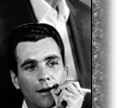 |
|
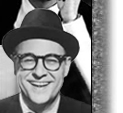 |
|
 |
|
 |
|
 |
|
 |
|
 |
|
 |
|
 |
|
 |
|
 |
|
 |
|
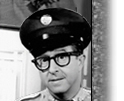 |
|
 |
|
 |
|
 |
|
 |
|
 |
|
 |
|
 |
|
 |
|
 |
|
 |
|
 |
|
 |
|
 |
|
 |
|
 |
|
 |
|
 |
|
 |
|
 |
|
 |
|
 |
|
 |
|
 |
|
 |
|
 |
|
 |
|
 |
|
 |
|
 |
|
 |
|
 |
|
 |
|
 |
|
 |
|
 |
|
 |
|
 |
|
 |
|
 |
|
 |
|
 |
|
 |
|
 |
|
 |
|
 |
|
 |
|
 |
|
 |
|
 |
|
 |
|
 |
|
 |
|
 |
|
 |
|
 |
|
 |
|
 |
|
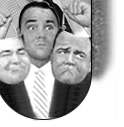 |
|
| Tributes | Talk | Events | News | Variety |
| Documentary | Music | Comedy | Juvenile | Awards |
| Biography | Sports | Productions | Others | Quiz |
| Specials |
|
164 Results found in Category Talk Pages: [1] 2 3 4 |
|
#10612:
BARRY GRAY SHOW, WMCA RADIO THE
1949-10-30, WMCA, min. Barry Gray , Adam Clayton powell , Hazel Scott Barry Gray was an American radio personality, often referred to as "the father of talk radio." His late-night New York City radio talk show was carried by WOR radio and then later by WMCA.
Barry Gray returned to WMCA in 1950, and stayed there for 39 years, refining the talk show format still utilized today. During the 1960s, he was in the odd position of having an 11 p.m.-1 a.m. late night talk show on a station otherwise dominated by Top 40 music and the youth-targeted "Good Guys" disc jockey campaign. But for teenagers who kept their radios on into the night, Gray's show was a window into the high-brow New York culture of the 1940s and 1950s.
Guests: Adam Clayton Powell, Hazel Scott.
|
|
#10423:
BILL KEMP RADIO SHOW, THE
1956-03-10, ABC, 2 min. Bill Kemp , Fay Wray Bill Kemp was an up and coming comic performer with a 1950s radio show heard on the ABC radio network. His daily radio show was expected to launch him into a television career, following a similar path to that of Merv Griffin. High powered guests such as Jonathan Winters, Ava Gardner, Will Jordan, and Robert Mitchum all made appearances on Kemp's show. Tragically, Kemp's television career never took off as he was plagued by a debilitating drinking problem. At times both Merv Griffin and Jim Backus, both of whom had radio shows on the ABC radio network at the time, would fill in for Kemp with "personal reasons" given for the absences. When the Bill Kemp radio show ended, he returned to his native Toronto, Canada home, his show business career ended. A sad ending to what could have been a very successful television career. On this two-minute segment, there is mention of WOR-TV's "Million Dollar Movie" and the television debut of the 1933 movie release, "King Kong." In a comedic moment, actress Fay Wray is heard screaming during the movie. |
|
#13299:
BEN HECHT SHOW, THE
1958-09-15, WABC, min. Ben Hecht , Robert L. Foreman September 15, 1958-January 30, 1959 This late night talk show aired on WABC television in New York. It's 25 minute time slot was 10:50pm to 11:15pm, Monday, Tuesday, Thursday & Friday evenings. On Wednesdays it would air for 15 minutes from 11:00pm to 11:15pm. Ben Hecht, playwright, screen writer, novelist, presented this live 22 week nightly commentary show. The format included Hecht's airing his views on the world at large, chatting with guests from varied fields, including literature, politics, journalism. Topics covered included the influences of critics, the fate of the poet in America, and the Supreme Court. Host was author, journalist, screenwriter, director, and producer Ben Hecht. His caustic comments would enrage some of the viewers while engaging others. In all, a total of 99 episodes were produced. NOTE: The four episodes of THE BEN HECHT SHOW, including the premiere (September 15, 1958) audio recorded at the time of the original broadcast and archived by Archival Television Audio, Inc. are the only extant examples in any broadcast form known representing this series with the exception of an audio air check uploaded to you tube...a broadcast October 17, 1958 with Jack Kerouac. No air checks exist in the Library of Congress, Paley Center for Media or UCLA Film & TV Archive. In this PREMIERE episode, host Ben Hecht talks to advertising executive Robert L. Foreman about television commercials. NOTE: On February 15, 1958, writer Ben Hecht (1893-1964), a flamboyant and caustic social critic, appeared on The Mike Wallace Interview. Wallace and his producer, Ted Yates, agreed that Hecht's personality was provocative enough to be the basis of a television show. The Ben Hecht Show was born. For 22 weeks, Ben Hecht held forth on a variety of subjects, enraging some, engaging many, in this short-lived television show. |
|
#13304:
BEN HECHT SHOW, THE
1958-10-08, WABC, min. Ben Hecht , Westbrook Pegler September 15, 1958-January 30, 1959 This late night talk show aired on WABC television in New York. It's 25 minute time slot was 10:50pm to 11:15pm, Monday, Tuesday, Thursday & Friday evenings. On Wednesdays it would air for 15 minutes from 11:00pm to 11:15pm. Ben Hecht, playwright, screen writer, novelist, presented this live 22 week nightly commentary show. The format included Hecht's airing his views on the world at large, chatting with guests from varied fields, including literature, politics, journalism. Topics covered included the influences of critics, the fate of the poet in America, and the Supreme Court. Host was author, journalist, screenwriter, director, and producer Ben Hecht. His caustic comments would enrage some of the viewers while engaging others. In all, a total of 99 episodes were produced. NOTE: The four episodes of THE BEN HECHT SHOW, including the premiere (September 15, 1958) audio recorded at the time of the original broadcast and archived by Archival Television Audio, Inc. are the only extant examples in any broadcast form known representing this series with the exception of a you tube uploaded TV Audio Air Check...a broadcast October 17, 1958 with Jack Kerouac. No air checks exist in the Library of Congress, Paley Center for Media or UCLA Film & TV Archive. Ben Hecht welcomes guest Westbrook Pegler. American journalist and writer. a popular columnist in the 1930s and 1940s, famed for his opposition to the New Deal and labor unions. Pegler viciously attacks the judiciary, accuses them of being politicians, immoral, brutally arrogant, drunk with power, and wear awesome black robes. He thinks the Supreme Court judges are a cut below "speed-trap judges." NOTE: On February 15, 1958, writer Ben Hecht (1893-1964), a flamboyant and caustic social critic, appeared on The Mike Wallace Interview. Wallace and his producer, Ted Yates, agreed that Hecht's personality was provocative enough to be the basis of a television show. The Ben Hecht Show was born. For 22 weeks, Ben Hecht held forth on a variety of subjects, enraging some, engaging many, in this short-lived television show. |
|
#13304A:
BEN HECHT SHOW, THE
1959-01-19, WABC, 45 min. Jimmy Durante , Ben Hecht September 15, 1958-january 30, 1959 This short lived late night talk show aired on WABC Channel 7 television ONLY in New York. Produced by Mike Wallace. It occupied an unorthodox time slot, 25 minutes from 10:50pm to 11:15pm, Monday, Tuesday, Thursday & Friday evenings. On Wednesdays it would air for 15 minutes from 11:00pm to 11:15pm. Ben Hecht, playwright, screen writer, novelist, presented this live 22 week nightly commentary show. The format included Hecht's airing his views on the world at large, chatting with guests from varied fields, including literature, politics, journalism. Topics covered included the influences of critics, the fate of the poet in America, and the Supreme Court. Host was author, journalist, screenwriter, director, and producer Ben Hecht. His caustic comments would enrage some of the viewers while engaging others. In all, a total of 99 episodes were produced. NOTE: The four episodes of THE BEN HECHT SHOW, including the premiere (September 15, 1958) audio recorded at the time of the original broadcast and archived by Archival Television Audio, Inc. are the only extant examples in any broadcast form known representing this series with the exception of an uploaded to you tube audio only air check broadcast October 17, 1958 with Jack Kerouac. No air checks exist in the Library of Congress, Paley Center for Media or UCLA Film & TV Archive. Ben Hecht welcomes guest Jimmy Durante in a two part broadcast, totaling 45 minutes combined, the first airing on January 19, and the second on January 20, 1959. Jimmy sits at the piano and converses with his old time pal Ben Hecht who interviews Durante who gives many anecdotes about his show business career and personal life. Jimmy plays many numbers he created over the decades. We feel we are in his parlor at home chatting and reminiscing with music, laughter and song. One of the most endearing, personal television appearances by Jimmy Durante. A "lost" Television Broadcast. The only two part Ben Hecht Show broadcast in the series. NOTE: On February 15, 1958, writer Ben Hecht (1893-1964), a flamboyant and caustic social critic, appeared on The Mike Wallace Interview. Wallace and his producer, Ted Yates, agreed that Hecht's personality was provocative enough to be the basis of a television show. The Ben Hecht Show was born. For 22 weeks, Ben Hecht held forth on a variety of subjects, enraging some, engaging many, in this short-lived television show. |
|
#10219:
BEN HECHT SHOW, THE
1959-01-20, ABC, 47 min. Jimmy Durante , Ben Hecht The Ben Hecht Show September 15, 1958 - February 6, 1959
Slotted in a most unusual time period by ABC television
(10:50pm - 11:15pm, Monday, Tuesday, Thursday, Friday, and 11:00pm - 11:15pm Wednesday nights) this series of 25 minute and 15 minute broadcasts with Ben Hecht, ran only for 22 weeks.
A little over 100 broadcasts were telecast of which only one known episode survives as a kinescope.
Ben Hecht whose motion picture and journalistic career brought him in touch with scores of celebrities in films, television, politics and the social set. Many of his guests are personal friends and that relationship provides for a very informal wonderful discourse during most interviews when discussing a variety of subjects; often enraging some, engaging many. His comments were often entertaining, defiant, realistic and iconoclastic. A rare approach to a commentary / talk show for even the late 1950's.
Two back to back broadcasts with Jimmy Durante are included in this archived series. The first program aired on January 19, 1959 followed by a follow up broadcast airing the following night, January 20, 1959. This very revealing special interview by Ben Hecht of his long time friend Jimmy Durante is a treasure.
Durante sits at that piano discussing his career and recalling a myriad of anecdotes related to his life and times, and plays melody's that personify the music he has been associated with during his long history in show business.
One of the rare jewels in the archive of Archival Television Audio.
|
|
#10610:
BARRY GRAY SHOW, WMCA RADIO THE
1960-03-10, WMCA, 40 min. Barry Gray , Malcolm X Barry Gray was an American radio personality, often referred to as "the father of talk radio." His late-night New York City radio talk show was carried by WOR radio and then later by WMCA.
Barry Gray returned to WMCA in 1950, and stayed there for 39 years, refining the talk show format still utilized today. During the 1960s, he was in the odd position of having an 11 p.m.-1 a.m. late night talk show on a station otherwise dominated by Top 40 music and the youth-targeted "Good Guys" disc jockey campaign. But for teenagers who kept their radios on into the night, Gray's show was a window into the high-brow New York culture of the 1940s and 1950s.
Guest: Malcolm X.
|
|
#13416:
BIG JOE'S HAPPINESS EXCHANGE RADIO SHOW
1960-05-14, WOR, min. Joey Adams , Joe Rosenfeld 1951-1959-WABC RADIO, 1960- WOR RADIO Big Joe's Radio Exchange was a radio talk/music program hosted by Joe (Big Joe) Rosenfeld. First heard on WABC radio in 1951 before it became a top-40 music station until 1959. it moved for a short period of time to WOR radio in 1960 where it was heard from 2 AM to 5 AM. It was a local New York City-based program. The guest tonight is Joey Adams. |
|
#13457:
BARRY GRAY INTERVIEWS, THE
1960-07-22, , min. Barry Gray Barry Gray was an American radio personality, often referred to as "the father of talk radio." His late-night New York City radio talk show was carried by WOR radio and then later by WMCA. Barry Gray returned to WMCA in 1950, and stayed there for 39 years, refining the talk show format still utilized today. During the 1960s, he was in the odd position of having an 11 p.m.-1 a.m. late night talk show on a station otherwise dominated by Top 40 music and the youth-targeted "Good Guys" disc jockey campaign. But for teenagers who kept their radios on into the night, Gray's show was a window into the high-brow New York culture of the 1940s and 1950s. Topic: The Congo terror. |
|
#13526:
BARRY GRAY SHOW, WMCA RADIO THE
1961-03-13, WMCA, 6 min. Jack Paar , Ed Sullivan , Jackie Kannon , Barry Gray Barry Gray was an American radio personality, often referred to as "the father of talk radio." His late-night New York City radio talk show was carried by WOR radio and then later by WMCA.
Barry Gray returned to WMCA in 1950, and stayed there for 39 years, refining the talk show format still utilized today. During the 1960s, he was in the odd position of having an 11 p.m.-1 a.m. late night talk show on a station otherwise dominated by Top 40 music and the youth-targeted "Good Guys" disc jockey campaign. But for teenagers who kept their radios on into the night, Gray's show was a window into the high-brow New York culture of the 1940s and 1950s.
We hear Jack Paar concluding his Tonight Show NBC TV broadcast stating that Ed Sullivan is a liar and he must suffer publicly for his actions. Paar mentions that he requests NBC not to delete what he has just said when his show, on Tape, is aired this evening.
The final five minutes of The Barry Gray Show at 12:55am (March 14, 1961, WMCA Radio) is heard, two hours after Paar's Tonight Show has been broadcast. Ed Sullivan emphatically tells Gray, by phone, that he is not a bully and that Paar can call him any name he desires.
Barry Gray's in studio guest Jackie Kannon states his impressions about the Paar/Sullivan feud.
|
|
#13681:
BARRY GRAY INTERVIEWS, THE
1962-06-06, WMCA, min. Barry Gray , George Hicks Barry Gray was an American radio personality, often referred to as "the father of talk radio." His late-night New York City radio talk show was carried by WOR radio and then later by WMCA. Barry Gray returned to WMCA in 1950, and stayed there for 39 years, refining the talk show format still utilized today. During the 1960s, he was in the odd position of having an 11 p.m.-1 a.m. late night talk show on a station otherwise dominated by Top 40 music and the youth-targeted "Good Guys" disc jockey campaign. But for teenagers who kept their radios on into the night, Gray's show was a window into the high-brow New York culture of the 1940s and 1950s. Barry Gray interviews D-Day reporter George Hicks, he recalls the moment in 1944 "as an awful waste." |
|
#13744:
BARRY FARBER SHOW, THE
1962-08-30, WOR, min. Barry Farber , Dan Bergman Barry Farber was an American conservative radio talk show host. He produced the Tex and Jinx radio program which starred Tex McCrary and Jinx Falkenberg. The show was heard weeknights on WNBC radio from 10:30 PM to midnight. Farber was also an author and commentator who wrote for various US newspapers. He was ranked the ninth greatest talk show host of all time by Talkers Magazine. He joined WOR radio in 1962 after a stint at 1010 WINS radio in New York City. When Farber left WOR radio he joined WMCA radio in New York City for an afternoon drive time show that lasted until 1989 when WMCA changed its format to a Christian radio station.
Barry Farber interviews reporter Dan Bergman, the topic is Castro's Cuba. Commentary on the future of Castro, recent hit and run raids on the island, Russians in Cuba, and predicts a bloody overthrow of Castro. Bergman says Krushchev will not fight for Castro.
|
|
#13908:
BARRY GRAY INTERVIEWS, THE
1962-12-12, , min. Jackie Gleason , David Susskind , Hugh Hefner , Barry Gray Barry Gray was an American radio personality, often referred to as "the father of talk radio." His late-night New York City radio talk show was carried by WOR radio and then later by WMCA. Barry Gray returned to WMCA in 1950, and stayed there for 39 years, refining the talk show format still utilized today. During the 1960s, he was in the odd position of having an 11 p.m.-1 a.m. late-night talk show on a station otherwise dominated by Top 40 music and the youth-targeted "Good Guys" disc jockey campaign. But for teenagers who kept their radios on into the night, Gray's show was a window into the high-brow New York culture of the 1940s and 1950s. Today's topic: The Playboy Club opens in New York City. David Susskind, Hugh Hefner,(owner of the Playboy Club) Barry Gray, and Jackie Gleason discuss the opening. |
|
#13956:
BARRY GRAY INTERVIEWS, THE
1963-01-26, WMCA, 30 min. Peter Lorre , Boris Karloff , Frankenstein , Barry Gray , Mr. Simon , John F. X. Condon Barry Gray was an American radio personality, often referred to as "the father of talk radio." His late-night New York City radio talk show was carried by WOR radio and then later by WMCA.
This episode was divided into two segments. The first deals with Congress and its interest in creating a bill to ban professional boxing in the wake of many boxers having died in the ring...nine since 1953.
Guest is John F. X. Condon, publicity director of boxing at Madison Square Garden, and congressman Simon who is behind the bill to forever abolish boxing.
The last 8 minutes of this archived tape provides a rare personal glimpse of Boris Karloff and Peter Lorre. Karloff discusses the origins of his Frankenstein role and how he got the part, his early acting experiences going all the way back to 1910, his English accent, and leading parts in plays such as Charlie's Aunt.
Peter Lorre discusses his screen persona as one who has been typecast playing villains, but which has provided him a good living as an actor. His latest release, The Raven is mentioned as well as his friendship with Vincent Price. Lorre discusses his association with the world of Art Paintings and today’s challenges finding good works of art to purchase, and speculations.
Barry Gray returned to WMCA in 1950, and stayed there for 39 years, refining the talk show format still utilized today. During the 1960s, he was in the odd position of having an 11 p.m.-1 a.m. late-night talk show on a station otherwise dominated by Top 40 music and the youth-targeted "Good Guys" disc jockey campaign. But for teenagers who kept their radios on into the night, Gray's show was a window into the high-brow New York culture of the 1940s and 1950s.
Topic: A discussion on the outlawing of professional boxing.
Barry Gray also speaks with Peter Lorre and Boris Karloff.
|
|
#14001a:
BARRY GRAY SHOW
1963-03-10, WMCA, 4 min. Barry Gray Slum housing in Negro and Puerto Rican neighborhoods is discussed. |
|
#14012:
BARRY GRAY INTERVIEWS, THE
1963-03-27, WMCA, 32 min. David Susskind , Abby Mann , Celeste Holm , Barry Gray , Martin Pohl , Harold Rand , David Slavitt Barry Gray was an American radio personality, often referred to as "the father of talk radio." His late-night New York City radio talk show was carried by WOR radio and then later by WMCA. Barry Gray returned to WMCA in 1950, and stayed there for 39 years, refining the talk show format still utilized today. During the 1960s, he was in the odd position of having an 11 p.m.-1 a.m. late-night talk show on a station otherwise dominated by Top 40 music and the youth-targeted "Good Guys" disc jockey campaign. But for teenagers who kept their radios on into the night, Gray's show was a window into the high-brow New York culture of the 1940s and 1950s. Topic: Barry Gray discusses the virtue of the Academy Awards with guests David Susskind, Celeste Holme, Abby Mann and others. |
|
#14029:
BARRY FARBER SHOW, THE
1963-04-04, WOR, 15 min. Barry Farber , William Fugazy , Laura Berkowitz Barry Farber was an American conservative radio talk show host. He produced the Tex and Jinx radio program which starred Tex McCrary and Jinx Falkenberg. The show was heard weeknights on WNBC radio from 10:30 PM to midnight. Farber was also an author and commentator who wrote for various US newspapers. He was ranked the ninth greatest talk show host of all time by Talkers Magazine. He joined WOR radio in 1962 after a stint at 1010 WINS radio in New York City. When Farber left WOR radio he joined WMCA radio in New York City for an afternoon drive time show that lasted until 1989 when WMCA changed its format to a Christian radio station.
Barry Farber interviews William Fugazy. Fugazy comments on the current deplorable racket-ridden state of professional boxing. Also, Laura Berkowitz reports on her trip to Castro's Cuba.
|
|
#14043:
BARRY GRAY INTERVIEWS, THE
1963-04-10, , min. Barry Gray , George W. Anderson Barry Gray was an American radio personality, often referred to as "the father of talk radio." His late-night New York City radio talk show was carried by WOR radio and then later by WMCA. Barry Gray returned to WMCA in 1950, and stayed there for 39 years, refining the talk show format still utilized today. During the 1960s, he was in the odd position of having an 11 p.m.-1 a.m. late-night talk show on a station otherwise dominated by Top 40 music and the youth-targeted "Good Guys" disc jockey campaign. But for teenagers who kept their radios on into the night, Gray's show was a window into the high-brow New York culture of the 1940s and 1950s. Topic: The US nuclear submarine "Thresher." Barry Gray on the phone seeking official information on the "Thresher." Interview with Admiral George W. Anderson concerning the "Thresher." |
|
#14081:
BARRY FARBER SHOW, THE
1963-05-07, WOR, min. Barry Farber , Fidel Castro , Jose Miro Cardona Barry Farber was an American conservative radio talk show host. He produced the Tex and Jinx radio program which starred Tex McCrary and Jinx Falkenberg. The show was heard weeknights on WNBC radio from 10:30 PM to midnight. Farber was also an author and commentator who wrote for various US newspapers. He was ranked the ninth greatest talk show host of all time by Talkers Magazine. He joined WOR radio in 1962 after a stint at 1010 WINS radio in New York City. When Farber left WOR radio he joined WMCA radio in New York City for an afternoon drive time show that lasted until 1989 when WMCA changed its format to a Christian radio station.
Jose Miro Cardona former leader of the Cuban exile group talks about Cuba and communism, debate on current Israeli-Arab problems.
|
|
#14084:
BARRY GRAY INTERVIEWS, THE
1963-05-09, WMCA, min. Barry Gray , Kenneth Keating , Wyatt Tee Walker , Samuel S. Stratton Barry Gray was an American radio personality, often referred to as "the father of talk radio." His late-night New York City radio talk show was carried by WOR radio and then later by WMCA. Barry Gray returned to WMCA in 1950, and stayed there for 39 years, refining the talk show format still utilized today. During the 1960s, he was in the odd position of having an 11 p.m.-1 a.m. late-night talk show on a station otherwise dominated by Top 40 music and the youth-targeted "Good Guys" disc jockey campaign. But for teenagers who kept their radios on into the night, Gray's show was a window into the high-brow New York culture of the 1940s and 1950s. Topic: The racial strife in Birmingham, Alabama. Barry Gray talks with negro minister Wyatt Tee Walker about the racial strife in Birmingham, also interviewed New York, Congressman Samuel S. Stratton. He talks about and attacks New York Republican Senator Kenneth Keating. |
|
#14089:
BARRY FARBER SHOW, THE
1963-05-13, WOR, min. Barry Farber , Henry Adler , Frank Meyer Barry Farber was an American conservative radio talk show host. He produced the Tex and Jinx radio program which starred Tex McCrary and Jinx Falkenberg. The show was heard weeknights on WNBC radio from 10:30 PM to midnight. Farber was also an author and commentator who wrote for various US newspapers. He was ranked the ninth greatest talk show host of all time by Talkers Magazine. He joined WOR radio in 1962 after a stint at 1010 WINS radio in New York City. When Farber left WOR radio he joined WMCA radio in New York City for an afternoon drive time show that lasted until 1989 when WMCA changed its format to a Christian radio station.
A debate between Frank Meyer (a conservative) and Henry Adler (a liberal) on politics, racial strife, etc.
Host: Barry Farber.
|
|
#14120:
BARRY FARBER SHOW, THE
1963-05-24, WOR, 9 min. Barry Farber , William F. Buckley Jr. Barry Farber was an American conservative radio talk show host. He produced the Tex and Jinx radio program which starred Tex McCrary and Jinx Falkenberg. The show was heard weeknights on WNBC radio from 10:30 PM to midnight. Farber was also an author and commentator who wrote for various US newspapers. He was ranked the ninth greatest talk show host of all time by Talkers Magazine. He joined WOR radio in 1962 after a stint at 1010 WINS radio in New York City. When Farber left WOR radio he joined WMCA radio in New York City for an afternoon drive time show that lasted until 1989 when WMCA changed its format to a Christian radio station.
Barry Farber interviews conservative William F. Buckley Jr.
|
|
#14127:
BARRY FARBER SHOW, THE
1963-05-28, WOR, min. Barry Farber , John Tully Barry Farber was an American conservative radio talk show host. He produced the Tex and Jinx radio program which starred Tex McCrary and Jinx Falkenberg. The show was heard weeknights on WNBC radio from 10:30 PM to midnight. Farber was also an author and commentator who wrote for various US newspapers. He was ranked the ninth greatest talk show host of all time by Talkers Magazine. He joined WOR radio in 1962 after a stint at 1010 WINS radio in New York City. When Farber left WOR radio he joined WMCA radio in New York City for an afternoon drive time show that lasted until 1989 when WMCA changed its format to a Christian radio station.
Barry Farber interviews John Tully. Comment on Neo-Nazis and hate groups, comments on the attitude of the US today on welfare, and the feelings of others.
|
|
#14162:
BARRY GRAY INTERVIEWS, THE
1963-06-12, WMCA, min. Barry Gray Barry Gray was an American radio personality, often referred to as "the father of talk radio." His late-night New York City radio talk show was carried by WOR radio and then later by WMCA. Barry Gray returned to WMCA in 1950, and stayed there for 39 years, refining the talk show format still utilized today. During the 1960s, he was in the odd position of having an 11 p.m.-1 a.m. late-night talk show on a station otherwise dominated by Top 40 music and the youth-targeted "Good Guys" disc jockey campaign. But for teenagers who kept their radios on into the night, Gray's show was a window into the high-brow New York culture of the 1940s and 1950s. Barry Gray and others comment on President Kennedy's civil rights speech and other civil rights matters. |
|
#14190:
BARRY FARBER SHOW, THE
1963-06-28, WOR, min. Barry Farber , Malcolm X , Allan P. Robinson Barry Farber was an American conservative radio talk show host. He produced the Tex and Jinx radio program which starred Tex McCrary and Jinx Falkenberg. The show was heard weeknights on WNBC radio from 10:30 PM to midnight. Farber was also an author and commentator who wrote for various US newspapers. He was ranked the ninth greatest talk show host of all time by Talkers Magazine. He joined WOR radio in 1962 after a stint at 1010 WINS radio in New York City. When Farber left WOR radio he joined WMCA radio in New York City for an afternoon drive time show that lasted until 1989 when WMCA changed its format to a Christian radio station.
Barry Farber interviews Malcolm X and Allan P. Robinson, an associate editor of Jet, the popular African American weekly magazine who often appeared on broadcast panels with Malcolm X.
There is an ad for "Dr. No," the latest James Bond film.
|
|
#14265:
BARRY FARBER SHOW, THE
1963-08-23, WOR, min. Barry Farber Barry Farber was an American conservative radio talk show host. He produced the Tex and Jinx radio program which starred Tex McCrary and Jinx Falkenberg. The show was heard weeknights on WNBC radio from 10:30 PM to midnight. Farber was also an author and commentator who wrote for various US newspapers. He was ranked the ninth greatest talk show host of all time by Talkers Magazine. He joined WOR radio in 1962 after a stint at 1010 WINS radio in New York City. When Farber left WOR radio he joined WMCA radio in New York City for an afternoon drive time show that lasted until 1989 when WMCA changed its format to a Christian radio station.
Topic: Problems in Vietnam: The Viet Cong and the Buddhists uprising.
|
|
#14304:
BARRY FARBER SHOW, THE
1963-09-20, WOR, min. John F. Kennedy , Barry Farber , Victor Lasky Barry Farber was an American conservative radio talk show host. He produced the Tex and Jinx radio program which starred Tex McCrary and Jinx Falkenberg. The show was heard weeknights on WNBC radio from 10:30 PM to midnight. Farber was also an author and commentator who wrote for various US newspapers. He was ranked the ninth greatest talk show host of all time by Talkers Magazine. He joined WOR radio in 1962 after a stint at 1010 WINS radio in New York City. When Farber left WOR radio he joined WMCA radio in New York City for an afternoon drive time show that lasted until 1989 when WMCA changed its format to a Christian radio station.
Barry Farber interviews writer Victor Lasky who is a sharp critic of President Kennedy. He discusses his book and his opinions of Kennedy.
|
|
#14357:
BARRY FARBER SHOW, THE
1963-10-21, WOR, 39 min. Barry Farber , Nelson Algren , William F. Buckley Jr. Barry Farber was an American conservative radio talk show host. He produced the Tex and Jinx radio program which starred Tex McCrary and Jinx Falkenberg. The show was heard weeknights on WNBC radio from 10:30 PM to midnight. Farber was also an author and commentator who wrote for various US newspapers. He was ranked the ninth greatest talk show host of all time by Talkers Magazine. He joined WOR radio in 1962 after a stint at 1010 WINS radio in New York City. When Farber left WOR radio he joined WMCA radio in New York City for an afternoon drive time show that lasted until 1989 when WMCA changed its format to a Christian radio station.
A debate between William F. Buckley Jr. and writer Nelson Algren who wrote the novel "The Man With The Golden Arm."
|
|
#14358:
BARRY GRAY INTERVIEWS, THE: WMCA RADIO
1963-11-24, WMCA, min. Barry Gray , Leo Cherne Barry Gray was an American radio personality, often referred to as "the father of talk radio." His late-night New York City radio talk show was carried by WOR radio and then later by WMCA. Barry Gray returned to WMCA in 1950, and stayed there for 39 years, refining the talk show format still utilized today. During the 1960s, he was in the odd position of having an 11 p.m.-1 a.m. late-night talk show on a station otherwise dominated by Top 40 music and the youth-targeted "Good Guys" disc jockey campaign. But for teenagers who kept their radios on into the night, Gray's show was a window into the high-brow New York culture of the 1940s and 1950s. Barry Gray's guest is Leo Cherne. They discuss the events that took place this past weekend involving the assassination of President John F. Kennedy and the shooting of alledged Kennedy assassin Lee Harvey Oswald by Jack Ruby. Barry Gray states that 100 years from today this past weekend will be written about!" Note: Leo Cherne was an American economist and public servant. |
|
#14367AAA:
BARRY GRAY SHOW, WMCA RADIO THE
1963-11-25, WMCA, min. Barry Gray , Morris Ernst Barry Gray talks with attorney Morris Ernst about the JFK assassination.
Barry Gray was an American radio personality, often referred to as "the father of talk radio." His late-night New York City radio talk show was carried by WOR radio and then later by WMCA.
Barry Gray returned to WMCA in 1950, and stayed there for 39 years, refining the talk show format still utilized today. During the 1960s, he was in the odd position of having an 11 p.m.-1 a.m. late night talk show on a station otherwise dominated by Top 40 music and the youth-targeted "Good Guys" disc jockey campaign. But for teenagers who kept their radios on into the night, Gray's show was a window into the high-brow New York culture of the 1940s and 1950s.
|
|
#19324:
BARRY GRAY INTERVIEWS, THE
1963-12-02, WMCA, min. Barry Gray Barry Gray was an American radio personality, often referred to as "the father of talk radio." His late-night New York City radio talk show was carried by WOR radio and then later by WMCA. Barry Gray returned to WMCA in 1950, and stayed there for 39 years, refining the talk show format still utilized today. During the 1960s, he was in the odd position of having an 11 p.m.-1 a.m. late-night talk show on a station otherwise dominated by Top 40 music and the youth-targeted "Good Guys" disc jockey campaign. But for teenagers who kept their radios on into the night, Gray's show was a window into the high-brow New York culture of the 1940s and 1950s. |
|
#19332:
BARRY FARBER SHOW, THE
1963-12-09, WOR, min. Barry Farber , Ed Reid Barry Farber was an American conservative radio talk show host. He produced the Tex and Jinx radio program which starred Tex McCrary and Jinx Falkenberg. The show was heard weeknights on WNBC radio from 10:30 PM to midnight. Farber was also an author and commentator who wrote for various US newspapers. He was ranked the ninth greatest talk show host of all time by Talkers Magazine. He joined WOR radio in 1962 after a stint at 1010 WINS radio in New York City. When Farber left WOR radio he joined WMCA radio in New York City for an afternoon drive time show that lasted until 1989 when WMCA changed its format to a Christian radio station.
Guest: Journalist Ed Reid who discusses organized crime in Las Vegas.
Host: Barry Farber.
|
|
#14384:
BARRY GRAY INTERVIEWS, THE: WMCA RADIO
1963-12-15, WMCA, min. Barry Gray Barry Gray was an American radio personality, often referred to as "the father of talk radio." His late-night New York City radio talk show was carried by WOR radio and then later by WMCA. Barry Gray returned to WMCA in 1950, and stayed there for 39 years, refining the talk show format still utilized today. During the 1960s, he was in the odd position of having an 11 p.m.-1 a.m. late-night talk show on a station otherwise dominated by Top 40 music and the youth-targeted "Good Guys" disc jockey campaign. But for teenagers who kept their radios on into the night, Gray's show was a window into the high-brow New York culture of the 1940s and 1950s. Host: Barry Gray. |
|
#19360:
BARRY GRAY INTERVIEWS, THE: WMCA RADIO
1963-12-17, WMCA, min. Barry Gray Barry Gray was an American radio personality, often referred to as "the father of talk radio." His late-night New York City radio talk show was carried by WOR radio and then later by WMCA. Barry Gray returned to WMCA in 1950, and stayed there for 39 years, refining the talk show format still utilized today. During the 1960s, he was in the odd position of having an 11 p.m.-1 a.m. late-night talk show on a station otherwise dominated by Top 40 music and the youth-targeted "Good Guys" disc jockey campaign. But for teenagers who kept their radios on into the night, Gray's show was a window into the high-brow New York culture of the 1940s and 1950s. Host: Barry Gray. |
|
#14395:
BARRY FARBER SHOW, THE
1964-01-07, WOR, min. Vaughn Meader , Barry Farber Barry Farber was an American conservative radio talk show host. He produced the Tex and Jinx radio program which starred Tex McCrary and Jinx Falkenberg. The show was heard weeknights on WNBC radio from 10:30 PM to midnight. Farber was also an author and commentator who wrote for various US newspapers. He was ranked the ninth greatest talk show host of all time by Talkers Magazine. He joined WOR radio in 1962 after a stint at 1010 WINS radio in New York City. When Farber left WOR radio he joined WMCA radio in New York City for an afternoon drive time show that lasted until 1989 when WMCA changed its format to a Christian radio station.
Barry Farber interviews John F. Kennedy impersonator Vaughn Meader.
|
|
#14422:
BARRY GRAY INTERVIEWS, THE
1964-02-10, WMCA, min. Barry Gray , The Beatles , Howard Samuels Barry Gray was an American radio personality, often referred to as "the father of talk radio." His late-night New York City radio talk show was carried by WOR radio and then later by WMCA. Barry Gray returned to WMCA in 1950, and stayed there for 39 years, refining the talk show format still utilized today. During the 1960s, he was in the odd position of having an 11 p.m.-1 a.m. late-night talk show on a station otherwise dominated by Top 40 music and the youth-targeted "Good Guys" disc jockey campaign. But for teenagers who kept their radios on into the night, Gray's show was a window into the high-brow New York culture of the 1940s and 1950s. Topic: Comments on the Beatles. Also, Howard Samuels on the current political picture. |
|
#14455:
BARRY FARBER SHOW, THE
1964-02-27, WOR, min. Barry Farber , Ed Reid , Dickey Chapelle Barry Farber was an American conservative radio talk show host. He produced the Tex and Jinx radio program which starred Tex McCrary and Jinx Falkenberg. The show was heard weeknights on WNBC radio from 10:30 PM to midnight. Farber was also an author and commentator who wrote for various US newspapers. He was ranked the ninth greatest talk show host of all time by Talkers Magazine. He joined WOR radio in 1962 after a stint at 1010 WINS radio in New York City. When Farber left WOR radio he joined WMCA radio in New York City for an afternoon drive time show that lasted until 1989 when WMCA changed its format to a Christian radio station.
Barry Farber talks with author Ed Reid who says boxing is a hoax, especially the Clay-Liston fight, he also claims that off-track betting proposed in New York City won't work-a hoax. Photojournalist Dickey Chapelle is also interviewed.
|
|
#14487:
BARRY GRAY INTERVIEWS, THE: WMCA RADIO
1964-04-13, WMCA, min. Howard Cosell , Barry Gray Barry Gray was an American radio personality, often referred to as "the father of talk radio." His late-night New York City radio talk show was carried by WOR radio and then later by WMCA. Barry Gray returned to WMCA in 1950, and stayed there for 39 years, refining the talk show format still utilized today. During the 1960s, he was in the odd position of having an 11 p.m.-1 a.m. late-night talk show on a station otherwise dominated by Top 40 music and the youth-targeted "Good Guys" disc jockey campaign. But for teenagers who kept their radios on into the night, Gray's show was a window into the high-brow New York culture of the 1940s and 1950s. Barry's guest is Howard Cosell. Host: Barry Gray. |
|
#14572:
BARRY GRAY INTERVIEWS, THE: WMCA RADIO
1964-06-19, WMCA, 9 min. Mort Sahl , Jacob Javits , Edward Kennedy , Barry Gray , Kevin Powers Barry Gray was an American radio personality, often referred to as "the father of talk radio." His late-night New York City radio talk show was carried by WOR radio and then later by WMCA. Barry Gray returned to WMCA in 1950, and stayed there for 39 years, refining the talk show format still utilized today. During the 1960s, he was in the odd position of having an 11 p.m.-1 a.m. late-night talk show on a station otherwise dominated by Top 40 music and the youth-targeted "Good Guys" disc jockey campaign. But for teenagers who kept their radios on into the night, Gray's show was a window into the high-brow New York culture of the 1940s and 1950s. Barry's guest is comedian Mort Sahl who is interrupted by a news bulletin about a plane crash in South Hampton Massachusetts involving Senator Edward Kennedy of Massachusetts. There is a second bulletin. We hear Kevin Powers announcement of the crash in more detail. Senator Edward Kennedy is reported in serious condition. There are two others in the plane which crashed at 11:35pm EST. We learn from Barry Gray who returns to the studio after hearing about the crash on the radio in his car heading home, after his live broadcast, which ended at !1:30pm on which he talked with Senator Jacob Javits at 11:25pm. Following the conclusion of this live broadcast, a pre-recorded Barry Gray show followed with Mort Sahl which is interrupted with the bulletins. Barry Gray hearing this on his car radio, driving home, returns to the studio. WMCA transmits live on which Barry Gray calls Senator Jacob Javits on the phone, telling him of the news, and getting his reaction. NOTE: This radio program was broadcast with, at times, severe original transmission static. Phil Gries (Archival Television Audio, Inc.) has reduced a lot of the static, as much as possible, making this rare broadcast quite discernable and extant. |
|
#14575:
BARRY GRAY INTERVIEWS, THE: WMCA RADIO
1964-06-22, WMCA, 6 min. Mort Sahl , Barry Gray Barry Gray was an American radio personality, often referred to as "the father of talk radio." His late-night New York City radio talk show was carried by WOR radio and then later by WMCA. Barry Gray returned to WMCA in 1950, and stayed there for 39 years, refining the talk show format still utilized today. During the 1960s, he was in the odd position of having an 11 p.m.-1 a.m. late-night talk show on a station otherwise dominated by Top 40 music and the youth-targeted "Good Guys" disc jockey campaign. But for teenagers who kept their radios on into the night, Gray's show was a window into the high-brow New York culture of the 1940s and 1950s. Barry's guest is Mort Sahl. They discuss the current political scene. Host: Barry Gray. |
|
#14583:
BRAD CRANDALL RADIO SHOW, THE
1964-07-16, WNBC, 5 min. Brad Crandall , Bill Mazer Brad Crandall (born Robert Lee Bradley; August 6, 1927 – March 14, 1991) was an American radio personality, voice-over announcer, and film narrator, best known for his radio show on WNBC in New York City, which aired from March 1964 to September 1971. March, 1964-September 1971 (WNBC Radio) A rare example of Brad Crandall pulling no punches with a caller to his evening radio talk show. The caller compares Crandall to a more gracious other talk show host, Bill Mazer, classifying Crandall as rude and abrupt with his audience, at times cutting them off and hanging up on them. Brad Crandall defends his demeanor and states his philosophy and his telephone etiquette when conversing with the public. Brad Crandall was an American conservative radio talk show host most remembered for his weekday night radio show heard on WNBC in New York City. Crandall's radio show debuted the same day Bill Mazer's late-afternoon phone-in sports talk show began on the station. Crandall was known for his right-wing views which would sometimes lead to heated debates among his more liberal left-wing callers. He also performed commercial voice-overs and film narrations. NOTE: While a handful of MONITOR broadcasts are extant with Bill Crandall hosting, none of his WNBC BILL CRANDALL SHOW radio broadcasts are known to exist in the archives' of the Paley Center for Media, UCLA Film & TV Archives, The Library of Congress, private collections or on the internet via you tube. |
|
#702:
BEATLEMANIA
1964-09-18, WABC, 26 min. The Beatles , Bill Beutel , Bruce Morrow , Scott Muni Bill Beutel, Bruce Morrow and Scott Muni review the Beatles craze in this special. Along with studio evaluations as to why the Beatles craze is so escalated, there are on site location recordings prior to the Beatles Forest Hills concert...on location recordings during the making of HARD DAY'S NIGHT, many interviews with the Beatles, reactions from Beatle fans, and Press conferences with the fabulous fore-some. Two complete Beatle songs are played. Included in this air check is one complete Pepsi Cola commercial who sponsored this program. |
|
#7685:
BARRY GRAY SHOW, THE
1964-10-12, WMCA, 45 min. Vaughn Meader , Barry Gray , Robert F Kennedy , Averell Harriman , William S Canon , Theodore Tennewald , Edward N Costikyan Radio talk show host Barry Gray interviews Rev William S Canon, comedian Vaughn Meader, New York City Democratic leader Edward N Costikyan, and judge Theodore Tennewald. Gray plays excerpts of candid audio recordings talking to Senator Robert F Kennedy briefing Governor Averell Harriman about the Valachi probe. |
|
#14629:
BARRY GRAY INTERVIEWS, THE: WMCA RADIO
1964-10-13, WMCA, min. Barry Gray , Robert F. Kennedy Barry Gray was an American radio personality, often referred to as "the father of talk radio." His late-night New York City radio talk show was carried by WOR radio and then later by WMCA. Barry Gray returned to WMCA in 1950, and stayed there for 39 years, refining the talk show format still utilized today. During the 1960s, he was in the odd position of having an 11 p.m.-1 a.m. late-night talk show on a station otherwise dominated by Top 40 music and the youth-targeted "Good Guys" disc jockey campaign. But for teenagers who kept their radios on into the night, Gray's show was a window into the high-brow New York culture of the 1940s and 1950s. Campaigning with Robert F. Kennedy. Host: Barry Gray. |
|
#14660:
BARRY GRAY INTERVIEWS, THE: WMCA RADIO
1964-10-29, WMCA, min. Barry Gray , Robert Kennedy , Kenneth Keating Barry Gray was an American radio personality, often referred to as "the father of talk radio." His late-night New York City radio talk show was carried by WOR radio and then later by WMCA. Barry Gray returned to WMCA in 1950, and stayed there for 39 years, refining the talk show format still utilized today. During the 1960s, he was in the odd position of having an 11 p.m.-1 a.m. late-night talk show on a station otherwise dominated by Top 40 music and the youth-targeted "Good Guys" disc jockey campaign. But for teenagers who kept their radios on into the night, Gray's show was a window into the high-brow New York culture of the 1940s and 1950s. Tonight's broadcast: Comment on Kennedy-Keating fracas, (Keating debating an "empty chair.") Host: Barry Gray. |
|
#10624:
BARRY GRAY SHOW, WMCA RADIO THE
1965-01-00, WMCA, min. Barry Gray , Leon Ameer Barry Gray was an American radio personality, often referred to as "the father of talk radio." His late-night New York City radio talk show was carried by WOR radio and then later by WMCA.
Barry Gray returned to WMCA in 1950, and stayed there for 39 years, refining the talk show format still utilized today. During the 1960s, he was in the odd position of having an 11 p.m.-1 a.m. late night talk show on a station otherwise dominated by Top 40 music and the youth-targeted "Good Guys" disc jockey campaign. But for teenagers who kept their radios on into the night, Gray's show was a window into the high-brow New York culture of the 1940s and 1950s.
Guest: Leon Ameer of the Black Muslims.
|
|
#14724:
BARRY FARBER SHOW, THE
1965-02-08, WOR, min. Barry Farber , Victor Riesel Barry Farber was an American conservative radio talk show host. He produced the Tex and Jinx radio program which starred Tex McCrary and Jinx Falkenberg. The show was heard weeknights on WNBC radio from 10:30 PM to midnight. Farber was also an author and commentator who wrote for various US newspapers. He was ranked the ninth greatest talk show host of all time by Talkers Magazine. He joined WOR radio in 1962 after a stint at 1010 WINS radio in New York City. When Farber left WOR radio he joined WMCA radio in New York City for an afternoon drive time show that lasted until 1989 when WMCA changed its format to a Christian radio station.
Guest: Journalist Victor Riesel.
|
|
#14876:
BARRY FARBER SHOW, THE
1965-06-07, WOR, 44 min. Barry Farber , Ossie Davis Barry Farber was an American conservative radio talk show host. He produced the Tex and Jinx radio program which starred Tex McCrary and Jinx Falkenberg. The show was heard weeknights on WNBC radio from 10:30 PM to midnight. Farber was also an author and commentator who wrote for various US newspapers. He was ranked the ninth greatest talk show host of all time by Talkers Magazine. He joined WOR radio in 1962 after a stint at 1010 WINS radio in New York City. When Farber left WOR radio he joined WMCA radio in New York City for an afternoon drive time show that lasted until 1989 when WMCA changed its format to a Christian radio station.
Guest is Ossie Davis who speaks with Barry Farber about the war in Vietnam.
|
|
#14883:
BARRY FARBER SHOW, THE
1965-06-11, WOR, 39 min. Barry Farber , Victor Riesel Barry Farber was an American conservative radio talk show host. He produced the Tex and Jinx radio program which starred Tex McCrary and Jinx Falkenberg. The show was heard weeknights on WNBC radio from 10:30 PM to midnight. Farber was also an author and commentator who wrote for various US newspapers. He was ranked the ninth greatest talk show host of all time by Talkers Magazine. He joined WOR radio in 1962 after a stint at 1010 WINS radio in New York City. When Farber left WOR radio he joined WMCA radio in New York City for an afternoon drive time show that lasted until 1989 when WMCA changed its format to a Christian radio station.
Guest: Journalist Victor Riesel who discusses the war in Vietnam with host Barry Farber.
|
|
#14978:
BARRY FARBER SHOW, THE
1965-11-04, WOR, min. Barry Farber , Dickey Chapelle Barry Farber was an American conservative radio talk show host. He produced the Tex and Jinx radio program which starred Tex McCrary and Jinx Falkenberg. The show was heard weeknights on WNBC radio from 10:30 PM to midnight. Farber was also an author and commentator who wrote for various US newspapers. He was ranked the ninth greatest talk show host of all time by Talkers Magazine. He joined WOR radio in 1962 after a stint at 1010 WINS radio in New York City. When Farber left WOR radio he joined WMCA radio in New York City for an afternoon drive time show that lasted until 1989 when WMCA changed its format to a Christian radio station.
Host Barry Farber remembers American war correspondent and photojournalist Dickey Chapelle who died from injuries sustained in the Vietnam war. Taped interview is recalled.
|
|
164 Results found in Category Talk Pages: [1] 2 3 4 |
Top
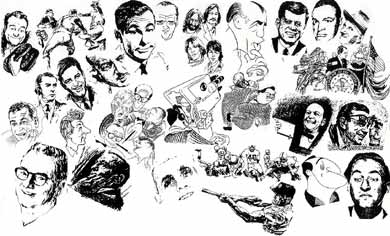
To search for a broadcast, please e nter a
Show Title, Personality, Airdate, Archive ID, Keyword or Phrase into the Search textboxes at the top of the page:
PRESERVING & ARCHIVING THE SOUND OF
LOST & UNOBTAINABLE ORIGINAL TV
(1946 - 1982)
"Preserving & disseminating important TV Audio
Air Checks, the video considered otherwise lost."
-Library of Congress
Vintage Television Audio Broadcasts
22,000 Titles - 20,000 Hours
Home | About us | Order Inquiry | TV Categories | Personality Index | Title Index
Archival Television Audio, Inc.
www.atvaudio.com
209 Sea Cliff Avenue
Sea Cliff, New York 11579
Attention: Phil Gries
|
Founder & Owner Phil Gries Director of Photography www.philgries.com |
"Any Inquiries"
Phone/Fax: (516) 656-5677
Email Us: gries@atvaudio.com
© 2002-2024 Collector's Choice Archival Television Audio, Inc.
All Rights Reserved.

Unique Visitors:
Visitor Counter
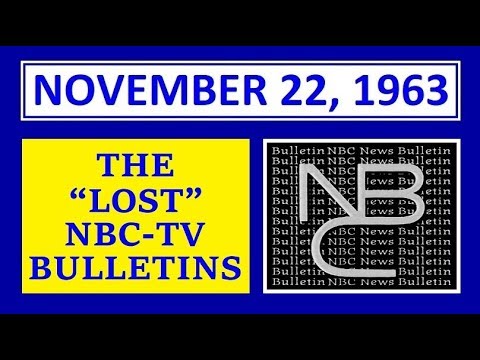
UNIQUE in the WORLD audio air check recordings by 20-year-old Phil Gries, archiving the first, second bulletins & initial NBC TV broadcast coverage of President John F. Kennedy's assassination. Not recorded by NBC or any other resource in the country.
- A&E TV SPECIAL - host Edwin Newman (11-22-1988) introduction - 25th Anniversary of JFK Assassination.
- NBC TV "Lost Don Pardo Bulletins" & Lost first 3:53 TV coverage (Phil Gries unique broadcast audio recording) unable to be video tape recorded or audio tape recorded by NBC.
- Phil Gries telephone interview with Don Pardo (5-14-1998).
- 10 minutes.
LIVE with PHIL GRIES
ARCHIVAL TELEVISION AUDIO - WEBINAR
Each Friday Evening from 7:30 - 8:30PM EST.
 RETRIEVABLE LOST MEMORIES
RETRIEVABLE LOST MEMORIESORDER
Vintage Television Audio Broadcasts
22,000 Titles
20,000 Hours
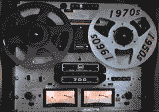
Testimonials
The Senior Moments Radio Broadcast show interviews Phil Gries about his Archival Television Audio archive and his restored documentary film, "Harlem School 1970"

Glen Cove Senior Center
January 23, 2018
 Phil Gries' recordings
Phil Gries' recordingsof vintage sounds
never grow old.

Hear Phil Gries on

Hear Phil Gries
and Joe Franklin
on Bloomberg Radio
(April 28, 2012)

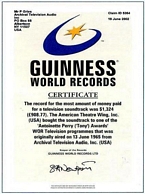
Home
Contact Us
ORDER INQUIRY
Hear Phil Gries on
National Public Radio
Archive Profile

ALL THINGS CONSIDERED
"Raising Ali"
(May 22, 2015)
Hear Phil Gries
on Sports Talk:
August 25, 2019
June 26, 2016
August 9, 2015


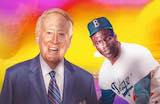

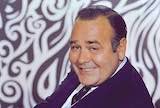
 Archive
ArchiveSearch Library
TV Categories
Personality Index
Title Index
ARSC Journal Article Publication: Lost TV Programs (1946-1972)

Hear Phil Gries presentations at ARSC (Association for Recorded Sound Collections) 2001, 2008, 2009, 2010, 2011, 2014.
Audio Samples

(Audio files may take 20 seconds or more to load)
1960's TV
Audio Player
103 Broadcast Samplers
AudioAndText™
Content
(Browser needs to
allow Flash content)
Content Collections
JFK Assassination
Coverage
NPR Walter Cronkite Essays
Civil Rights Movement (1956-1968)
Space Exploration (1956-1972)
Vietnam War
(1961-1975)
[854 Entries]
Company Information
About Us
Descriptions
Access
Fees
Archive
TIME-LINE
Accreditation
Master Materials
Research
Copyrights
Restricted Archive Titles
Catalogs
Related Materials
TV History
Lost Television
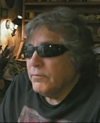
Jose Feliciano, at 70, listening to his FIRST TV variety show appearance (Al Hirt: FANFARE), telecast on July 17, 1965, when he was 19 years old.
TV Audio:
Rare & Valued
When TV Variety
Was King
This Anniversary Day
In Television History
ARSC/IASA London Conference: Why Collect?

News 12 Long Island
Live Television Profile:
Archival Television Audio, Inc
CAPTURED LIVE: CULTURES OF TELEVISION RECORDING AND STORAGE, 1945-1975

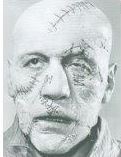
NBC MATINEE THEATER
FRANKENSTEIN
NBC TV - Feb. 5, 1957
8:23 min. excerpt
Phil Gries TV Audio Archive
Profile Segment
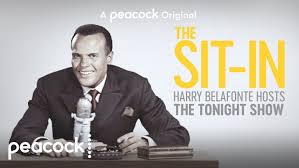
Harry Belafonte Hosts
The Tonight Show
5:21 min. excerpt
Password: Phil
(Case Sensitive)